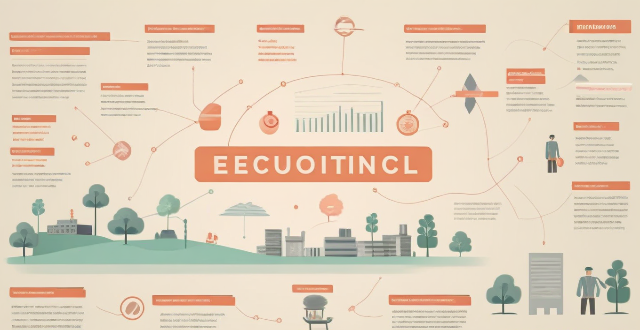Growth Venture

What are the key factors to consider when looking for venture capital investment ?
When seeking venture capital investment, entrepreneurs should consider factors such as a strong business plan, traction and growth potential, an experienced management team, competitive advantage, and financial health. A well-crafted business plan should include market analysis, financial projections, and an exit strategy. Traction can be demonstrated through customer acquisition, revenue growth, or product development milestones. An experienced management team with relevant expertise in the industry is also crucial. Competitive advantage can be showcased through a unique selling proposition, intellectual property, or market differentiation. Finally, maintaining financial health and clearly defining funding needs are essential for securing venture capital investment. By considering these key factors, entrepreneurs can increase their chances of success in fundraising efforts and overall business growth.

What is the relationship between private equity and venture capital ?
Private equity and venture capital are investment strategies with similarities but distinct differences in focus, stage of investment, and type of companies they invest in. Private equity firms typically invest in established companies looking to expand or restructure, often in industries such as healthcare, technology, and real estate. Venture capitalists primarily invest in startups and early-stage companies with high growth potential, often in innovative technologies and new business models. Private equity investments are usually made in later stages of a company's development, while venture capital investments are made at earlier stages. Private equity firms tend to invest in larger, more mature companies with established revenue streams and proven business models, while venture capitalists invest in smaller, younger companies with high growth potential but also higher risks due to their unproven business models. It is important for investors to understand these differences when considering which type of investment strategy aligns with their goals and risk tolerance.

What is the difference between angel investors and venture capitalists ?
The main differences between angel investors and venture capitalists are: - Investment Amount: Angel investors typically invest smaller amounts of money, while venture capitalists invest larger sums. - Investment Stage: Angel investors tend to invest in early-stage companies, while venture capitalists invest in later-stage companies that are further along in their development. - Risk Tolerance: Angel investors are generally willing to take on higher levels of risk than venture capitalists. - Involvement Level: Angel investors tend to be more hands-on and involved in the companies they invest in, while venture capitalists typically have less direct involvement.

What role does networking play in attracting venture capitalists ?
Networking is crucial in attracting venture capitalists. It helps entrepreneurs build relationships, gain access to resources, and increase their chances of success. Tips for effective networking include attending industry events, building strong relationships, providing value, following up, and being genuine.

What are the tax implications of receiving venture capital investment ?
Receiving venture capital investment can have significant tax implications for a startup company, including the treatment of investment proceeds as ordinary income and potential valuation issues. Tax credits and incentives may be available, and exit strategies should be evaluated for their tax consequences. Additional accounting and reporting requirements may also arise. It is important to work with a qualified tax professional to ensure compliance with tax laws and maximize the benefits of venture capital investment.

Are celebrity-backed startups more likely to receive funding from venture capitalists ?
Celebrity-backed startups can benefit from increased visibility and trust, potentially attracting venture capital funding. However, VCs consider various factors such as business model and team experience, and celebrity endorsement is not a guarantee of success or funding. Success stories like Will Smith's investment in Just Water show the potential advantages, but there are also failures where celebrity involvement did not ensure success. Celebrity backing should be seen as one part of a larger puzzle for VCs.

What are some alternative sources of funding for startups besides venture capital ?
Startups have various funding options beyond venture capital, including angel investors, crowdfunding, friends and family, bank loans, government grants, strategic partnerships, and bootstrapping. Each method has its advantages and drawbacks, so startups should carefully consider their options based on their specific needs and goals.

How do private equity firms make money ?
Private equity firms generate profits through various strategies, includingPrivate equity firms generate profits through various strategies, includingLBOs), growth capital including leveraged buyouts (LBOs), growth capital investments, and venture capital investments. LBOs involve acquiring companies with debt and equity financing to improve their value for a higher sale price or public offering. Growth capital investments provide funding to established companies with growth potential but not ready for an LBO or public offering. Venture capital investments target early-stage startups with high growth potential but limited track records. Private equity firms manage risk by diversifying across industries and geographies, conducting thorough due diligence, actively involving portfolio company management, and monitoring financial performance metrics. By balancing risk and reward, they can achieve consistent returns over time while minimizing losses from individual investments.

How long does it typically take to secure funding from a venture capital firm ?
Securing funding from a venture capital firm involves several stages, including preparation, initial meetings and screening, negotiation and terms sheets, and closing and funding. The timeframe for each stage can vary depending on factors such as the industry, company growth stage, VC firm investment criteria, and market conditions. The preparation phase involves researching and identifying suitable VC firms, preparing pitch materials, and networking and outreach. The initial meetings and screening stage includes first meetings with VC firms and due diligence and screening. The negotiation and terms sheets phase involves investment terms negotiation and signing the terms sheet. Finally, the closing and funding stage includes legal and financial due diligence and receiving funding and post-investment support.

Can economic growth be compatible with sustainable development ?
Economic growth and sustainable development can coexist through strategies such as promoting green economies, inclusive growth, regulation and policy, technological innovation, and international collaboration.

What is private equity ?
Private equity (PE) is an investment strategy where funds pool capital from institutional investors to directly invest in companies. This involves buying out existing shareholders or providing growth capital, with the aim of improving operations and selling at a profit. Key features include long-term investments, active ownership, diverse strategies, and a clear exit strategy. Types of PE include leveraged buyouts, venture capital, growth equity, mezzanine financing, and secondaries. Private equity firms play roles in due diligence, deal structuring, operational improvement, financial management, and exit planning. Benefits of PE include economic growth, job creation, and operational expertise, while criticisms include high debt loads, short-term focus, and potential negative labor impacts.

What is the ideal temperature for indoor plant growth ?
Indoor plants generally thrive in temperatures between 65°F to 75°F during the day and slightly cooler at night, along with proper humidity and air circulation. Maintaining these conditions helps promote healthy growth and flowering. Use a thermometer, avoid drafts, and adjust heating or cooling as needed to keep plants comfortable.

How do celebrities typically get involved in startup investments ?
Celebrities are increasingly getting involved in startup investments, leveraging their fame and fortune to support innovative ventures. They typically get involved through direct investments using personal wealth or acting as angel investors, collaborative ventures with venture capital firms or starting their own funds, endorsement deals including product placements and strategic partnerships, social media promotion to influence followers or engage in affiliate marketing, public appearances at conferences or hosting funding events, and licensing and royalty agreements for brand licensing or royalty sharing. Celebrity involvement in startup investments varies widely depending on individual interests, expertise, and the nature of the opportunity.

How do changes in immigration policy influence economic growth ?
Changes in immigration policy can have a significant impact on economic growth by increasing the labor force, promoting diversity, increasing consumer spending, reducing wage inflation, and increasing tax revenue.

How does climate cooperation impact global economic growth ?
Climate cooperation has a positive impact on global economic growth by fostering new industries, promoting international trade and investment, stimulating innovation and research, enhancing resilience against climate impacts, and encouraging policy coherence and stability.

What is the ideal percentage of income to save for wealth growth ?
This text discusses the importance of saving a portion of one's income for wealth growth and explores factors such as personal financial situation, financial goals, lifestyle choices, and income level that determine the ideal savings rate. It also provides general guidelines for saving, including starting small, increasing gradually, and aiming for at least 20% of income.

How do I invest my money wisely for long-term growth ?
Investing wisely for long-term growth involves setting financial goals, creating a diversified portfolio, considering risk tolerance, investing for the long-term, and monitoring investments regularly.

What is the relationship between energy prices and economic growth ?
The interplay between energy prices and economic growth is multifaceted, with each influencing the other in various ways. High energy prices can impede economic expansion by escalating production costs, diminishing consumer purchasing power, and fostering inflation. They might also spur investment in alternative energies and drive resource reallocation towards efficiency, counterbalancing some of their immediate negative impacts. Conversely, robust economic growth often amplifies energy demand, propelling prices upwards unless compensated by enhanced supply or technological advancements that boost efficiency. This intricate relationship underscores the importance of strategic policy interventions to manage energy pricing dynamics for sustainable economic development.

How do climate commitments impact economic growth and development ?
The impact of climate commitments on economic growth and development is multifaceted, with both positive and negative aspects. On the positive side, these commitments stimulate innovation in renewable energy sources and energy efficiency, create new markets for green products and services, improve public health by reducing air pollution, and enhance international cooperation. On the negative side, there are transition costs associated with shifting from fossil fuels to renewable energy sources, potential job displacement in traditional industries, trade-offs between environmental protection and economic growth, and unequal distribution of benefits and costs. Despite these challenges, prioritizing sustainability can lead to long-term economic growth while protecting the environment for future generations.

How do environmental subsidy policies impact economic growth ?
The text discusses the impact of environmental subsidy policies on economic growth, highlighting both positive and negative effects. Positive impacts include stimulating innovation and technology development, enhancing energy efficiency, creating job opportunities, and improving public health. Negative impacts encompass distorting market incentives, increasing government expenditures, potential for carbon lock-in, and global trade implications. It concludes that while environmental subsidies have the potential to foster economic growth, they must be carefully designed to avoid adverse effects and contribute positively to sustainable economic development.

How do regulations affect the growth of the commercial space industry ?
Regulations significantly influence the growth of the commercial space industry by providing a framework for innovation, ensuring safety and security, promoting competition, addressing environmental concerns, and adapting to rapid changes. Effective regulations can facilitate industry growth by reducing uncertainty and lowering barriers to entry, while also protecting public interest through strict safety standards and sustainable practices.

How do global economic trends affect personal wealth growth strategies ?
Global economic trends significantly influence personal wealth growth strategies by affecting factors such as interest rates, inflation, economic growth, global trade, and political stability. Understanding these trends helps individuals make informed decisions about investments and financial planning.

What are the key factors driving the growth of the Chinese economy ?
The growth of the Chinese economy has been driven by several key factors, including government policies and reforms, demographic dividend, globalization and export-led growth, domestic demand and consumption, and environmental sustainability and green growth. These factors have collectively contributed to rapid economic development in China over the past few decades. However, ongoing challenges such as demographic changes, environmental concerns, and global economic uncertainties require continued adaptation and innovation to sustain future growth.

Can playing sports improve one's self-confidence and personal growth ?
Playing sports can contribute to self-confidence and personal growth by developing skills, overcoming challenges, fostering teamwork and support, promoting discipline and responsibility, encouraging goal setting and achievement, and enhancing social interaction and empathy. Incorporating sports into one's lifestyle can be highly beneficial for overall well-being and personal development.

How do tax laws impact my strategy for wealth growth ?
Tax laws play a significant role in shaping your wealth growth strategy. They can impact your investment decisions, retirement planning, and estate planning. Understanding how tax laws impact your wealth growth strategy is crucial for making informed financial decisions. By considering the tax implications of your investments, retirement planning, and estate planning, you can develop a comprehensive wealth growth strategy that maximizes your after-tax returns and helps you achieve your financial goals.

What are the key economic indicators to watch for global growth ?
Monitoring key economic indicators such as GDP, inflation rate, unemployment rate, interest rates, trade balance, current account balance, manufacturing and service sector indexes, stock market performance, and consumer confidence indices is crucial for policymakers, investors, and businesses to understand global economic growth. These indicators provide insights into the overall health of an economy, guide decision-making processes, and help predict future trends.

How does exercise affect muscle growth and repair at a cellular level ?
Exercise stimulates protein production for muscle growth and repair, increases satellite cells for new muscle fibers, boosts blood flow for nutrient delivery and waste removal, and promotes the release of growth factors like IGF-1.

How can sports help individuals develop leadership skills and personal growth ?
Participating in sports can help individuals develop leadership skills and foster personal growth by enhancing goal-setting, teamwork, resilience, decision-making under pressure, accountability, confidence building, discipline, physical health, emotional intelligence, and social interaction.

How have climate-related risks influenced the growth of impact investing ?
Climate-related risks have significantly influenced the growth of impact investing by making investors more aware of the potential financial risks associated with climate change. This has led to an increased demand for investments that not only generate financial returns but also address environmental and social issues. Impact investing, which focuses on creating positive social and environmental impact alongside a financial return, has emerged as a popular investment strategy in response to this trend. Key factors driving the growth of impact investing include increased awareness of climate change, regulatory pressure, consumer demand for sustainable products and services, financial opportunities in sustainable industries, and alignment with ethical values. As these trends continue to shape the global economy, we can expect impact investing to become an increasingly important part of mainstream finance.

Are there any books or resources you recommend on wealth growth strategies ?
The text recommends various books and resources on wealth growth strategies, including "The Total Money Makeover" by Dave Ramsey, "Rich Dad Poor Dad" by Robert Kiyosaki, "The Millionaire Next Door" by Thomas J. Stanley and William D. Danko, and "The Intelligent Investor" by Benjamin Graham. It also suggests online resources such as personal finance blogs, podcasts, and courses for learning about wealth growth strategies.